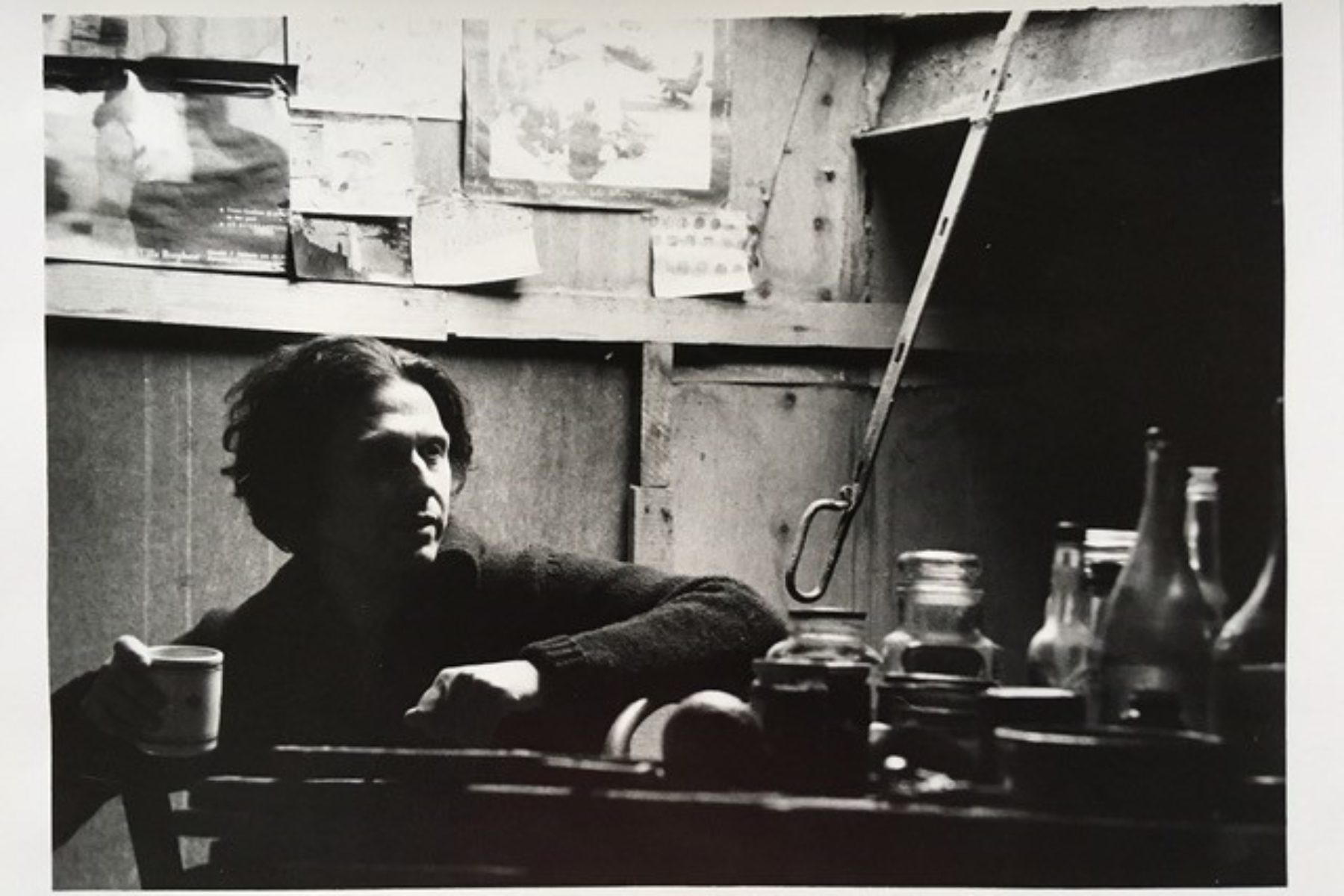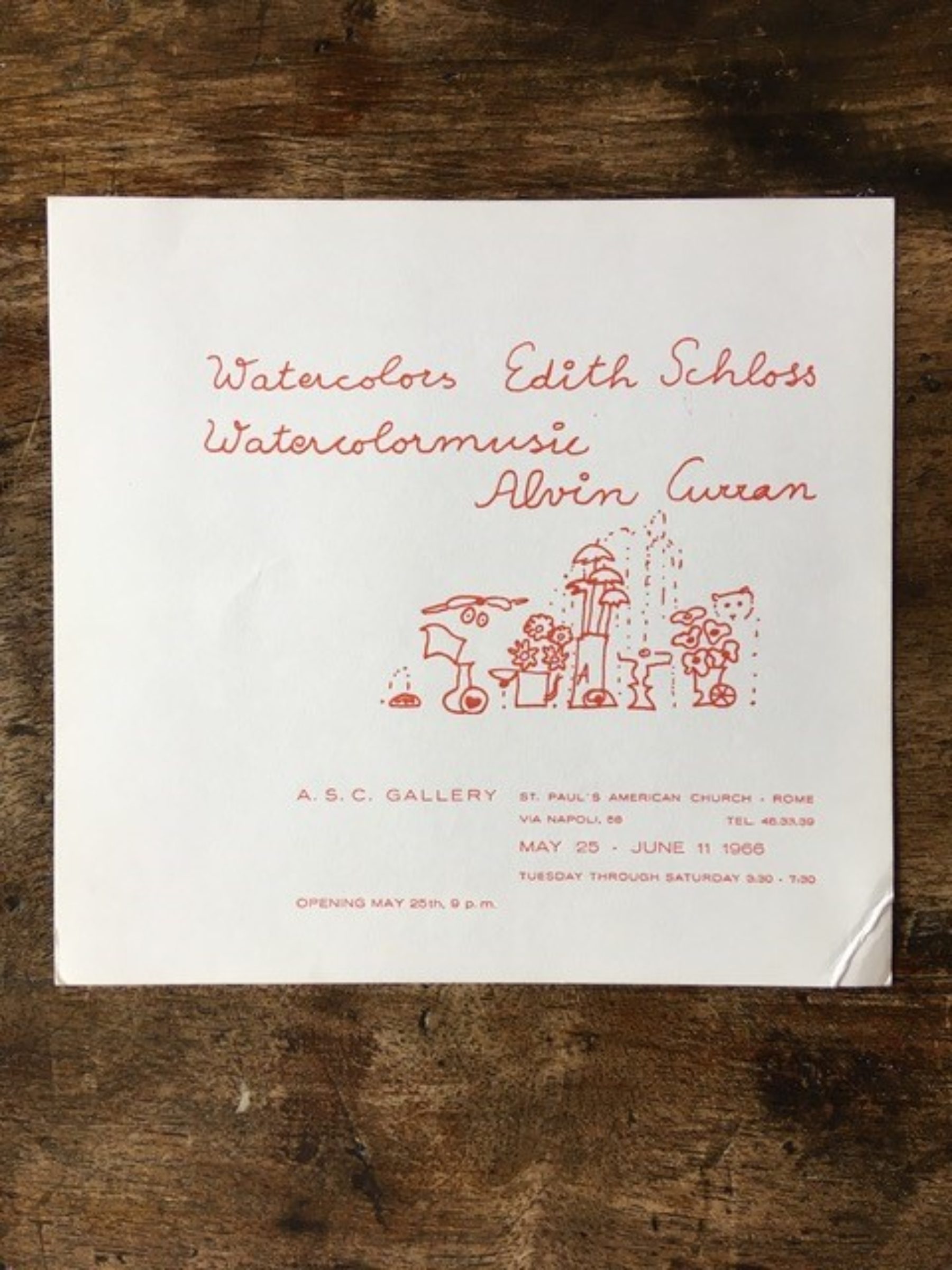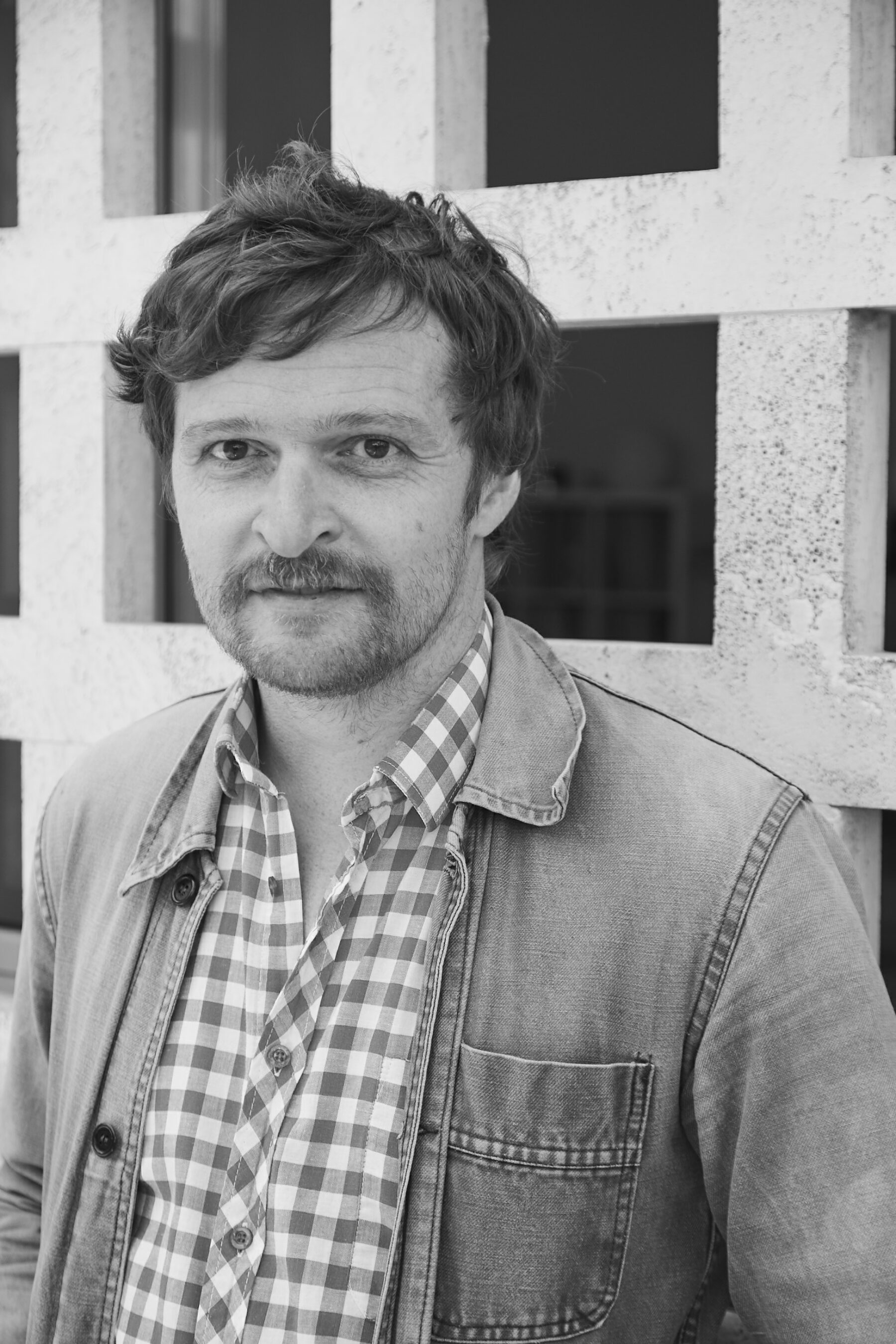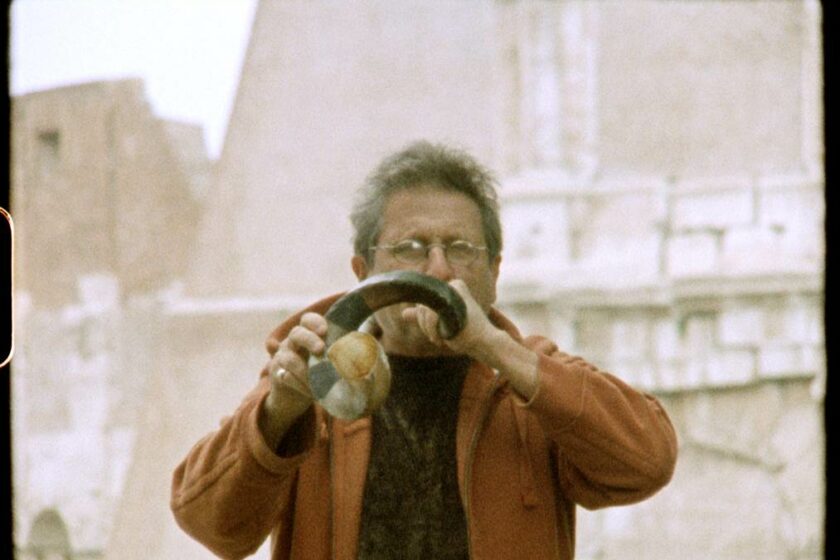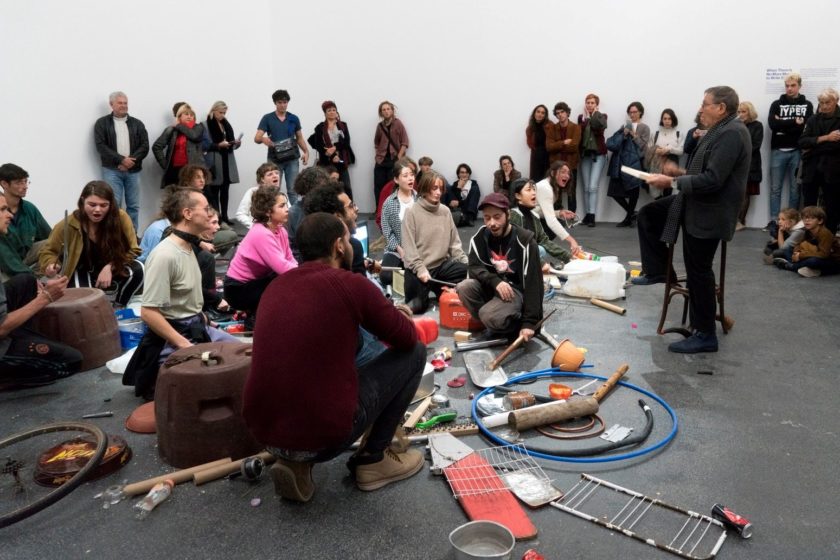An online lecture by Marseille-based music historian Maxime Guitton on the work of Alvin Curran, to coincide with the exhibition When There Is No More Music to Write.
In 2017, Marseille-based music historian Maxime Guitton began a year-long research project exploring the archives of American composer, improviser and pedagogue, Alvin Curran. Guitton’s research unveiled crucial and little-known chapters in the history of avant-garde music and performing arts, and explores how an experimental artistic practice characterised by radical politics, communal experience, contemplation of nature and solitude, can make history.
Since 1964, Curran has worked at the crossroads of composition and improvisation, electronics and instrumental music, radio works and sound installations – often in conversation with post-modern dance, Arte Povera, Fluxus, minimalism, free improvisation, avant-garde theatre, experimental poetry, and artists’ film. In his research, Guitton unveils this crucial and still little known part of avant-garde musical and performing arts history to understand the way an experimental artistic practice –through radical politics, communal experience, contemplation of nature and solitude – can make history.
In this wide-ranging lecture Guitton will trace a thread connecting a complex constellation of locations, landscapes and artists – John Cage, Cornelius Cardew, Simone Forti, Joan Jonas, Michelangelo Antonioni, Cy Twombly, and Trisha Brown among them – who populate Curran’s Rome-based archive.
This event is introduced by Spike Island curator Carmen Juliá and is followed by a Q&A with the online audience.
Maxime Guitton
Maxime Guitton (b. 1977, Dunkerque, based in Marseille, France) is a music historian whose main areas of research — minimalist music and the history of mountaineering — have led him to contribute to musical programmes, workshops, conferences, listening sessions, round tables, radio broadcasts and publications with colleges, arts centres and museums including: ECAL, Lausanne; École du Magasin, Grenoble; Carré d’art, Nîmes; Villa du Parc, Annemasse; Le Plateau, Paris; Bétonsalon, Paris; Le BAL, Paris; Fondation Cartier, Paris; CAPC, Bordeaux and Centre Pompidou, Paris. Between 2009 and 2011 he assisted the composer Éliane Radigue. In 2017-2018, he was a resident at the Villa Medici in Rome where he carried out archival research on Alvin Curran. Guitton is currently the research coordinator and artistic and cultural programmer of the School of Fine Arts in Marseille.
ALVIN CURRAN
Alvin Curran (b. 1938, Providence, Rhode Island, based in Rome, Italy) has realised a long and fruitful career as a composer, performer, installation artist, writer, and teacher in the American experimental music tradition. He studied with Ron Nelson, Elliott Carter and Mel Powell, and co-founded the group Musica Elettronica Viva in 1966 in Rome. He has taught at Rome’s National Academy of Theater Arts; Mills College, Oakland and the Mainz Hochschule für Musik, Frankfurt am Main. Recent projects include: Concerto for Bathtub and Orchestra (2017); the disintegrating installation – Pian de Pian Piano (2017); Maritime Rites Rome – for musicians on rowboats (2017); A Banda Larga – a street symphony (2018). He has performed at the Teatro Colón (2017); Big Ears Festival (2017); The New York Armory (2018), and collaborated with poet Clark Coolidge (Other Minds Festival, 2018), pianist Ciro Longobardi, and stage director Achim Freyer (on Der Goldene Topf, 2019). He has published articles in the New York Times, Musiktexte, The Contemporary Music Review, amongst others, and released more than thirty solo and sixty collaborative recordings. A book about his work, Alvin Curran: Live in Roma (2011), was edited by Daniela Tortora, and in 2015 Curran published the alvin curran fakebook, an illustrated compendium of more than two hundred (mostly) notated pieces. In 1975 he won the Logos Award, in 1995 the Leonardo Award for Excellence, and in 2004 he was awarded a Guggenheim Fellowship. He is currently a consultant for the American Academy in Rome.


